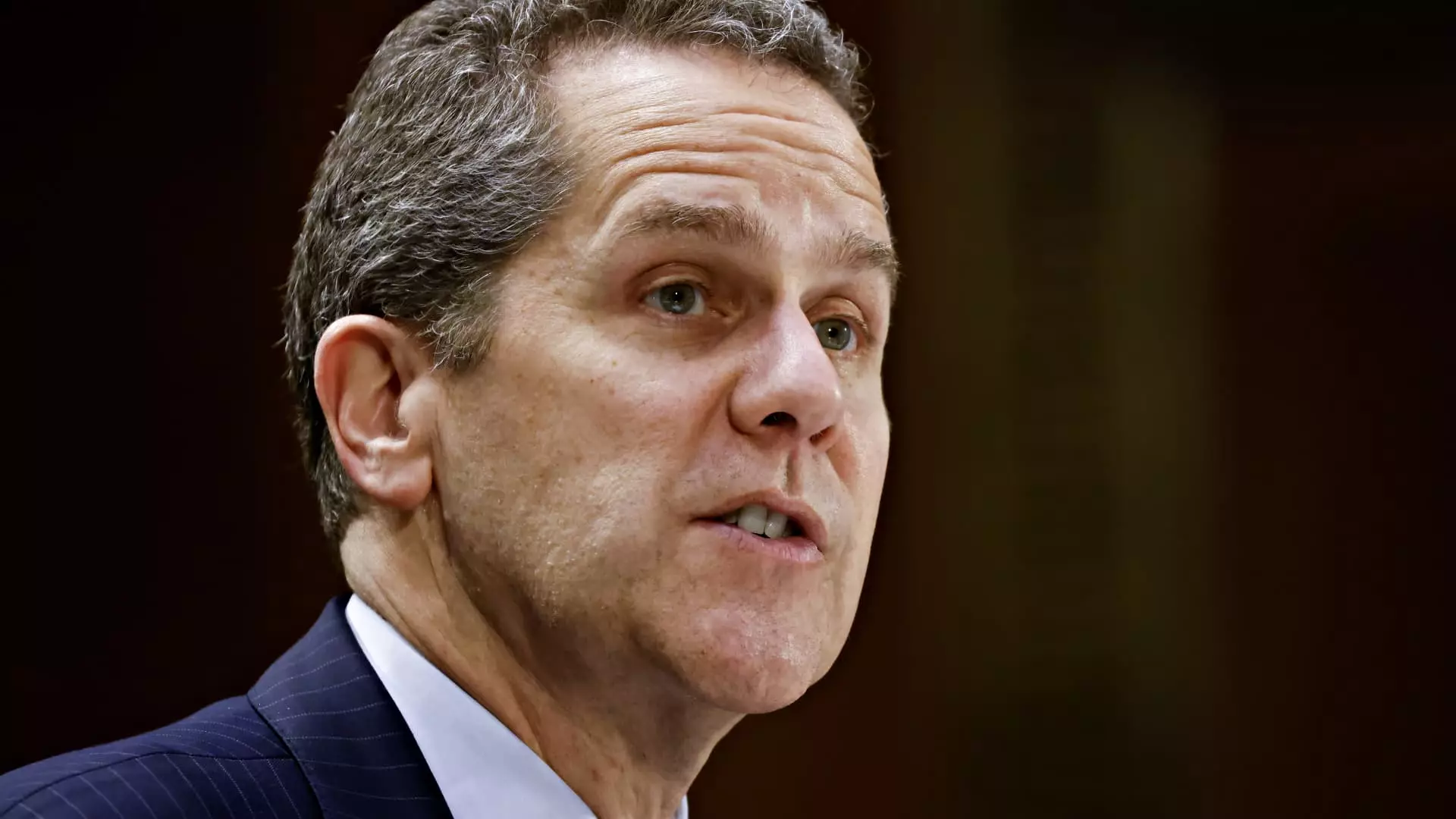The recent resignation of Michael Barr from his role as the Federal Reserve’s vice chair for supervision marks a significant moment in the trajectory of the U.S. banking regulatory landscape. He will leave this position on February 28, paving the way for President-elect Donald Trump to appoint a successor. Barr’s decision reflects an awareness of the political climate and the potential for conflict between the incoming administration and the regulatory body. This article explores the implications of Barr’s departure, the context of his tenure, and the future landscape of U.S. banking regulation.
Michael Barr’s resignation was not merely routine; it occurred against a backdrop of political uncertainty and a shift in national leadership. Barr joined the Federal Reserve Board as a governor, a role he will retain until 2026, allowing him to influence monetary policy beyond his supervisory duties. However, the timing of his resignation suggests a calculated maneuver to prevent potential disputes that could distract from the Federal Reserve’s vital mission. By stepping aside, Barr acknowledges the prevailing sentiment in Trump’s administration favoring a more lenient stance toward banks, particularly in the wake of financial turmoil experienced in recent years.
Barr’s tenure as vice chair for supervision has been marked by his oversight during a tumultuous period for the banking sector. The industry faced significant challenges, notably the collapse of Silicon Valley Bank earlier this year, prompting the Fed to introduce emergency liquidity measures. This crisis highlighted the precariousness of the financial system, underscoring the critical need for effective oversight. Barr’s experience in navigating these crises adds depth to his legacy, but it has not shielded him from the political tides sweeping Washington.
With Barr’s exit, the Federal Reserve enters a period of transition that may bring substantial changes. Trump’s administration is expected to prioritize regulatory rollbacks, which could manifest in the selection of a more bank-friendly successor. This potential shift in regulatory tone raises important questions about the balance between fostering growth within the banking sector and ensuring the stability of the financial system.
The appointment of a new vice chair for supervision will also impact ongoing regulatory frameworks, such as the currently debated “Basel endgame” rules. These regulations, which are designed to bolster banks’ capital requirements and enhance their resilience, have faced criticism from industry leaders. The Fed’s announcement that major decisions on regulations will be postponed until Barr’s successor is appointed signals a period of uncertainty for financial institutions as they await clarity on regulatory expectations.
The reaction from the markets has been telling; bank stocks surged following the announcement of Barr’s resignation. This rise reflects investor optimism that a shift in regulatory philosophy may lead to a more favorable environment for banks. However, caution is warranted. The implications of changing leadership and potential regulatory rollbacks must be carefully weighed against the lessons learned from past financial crises.
As the Federal Reserve prepares for this new chapter, it faces the dual challenge of balancing the needs of the banking sector while guarding against the risks that could jeopardize economic stability. The evolution of U.S. banking regulation in the wake of Barr’s resignation will hinge on the choice of his successor and their ability to navigate the complex landscape of finance in an increasingly politicized environment. Thus, the coming months will be critical in shaping the future of the American financial system.

